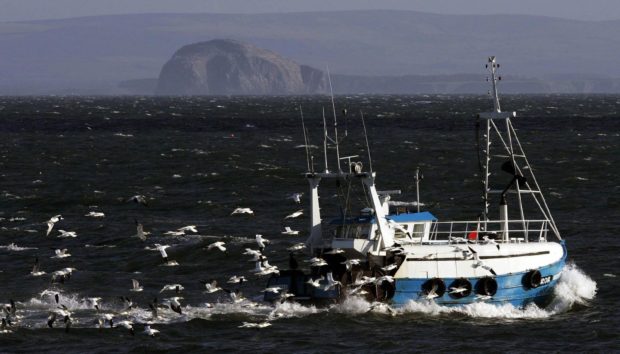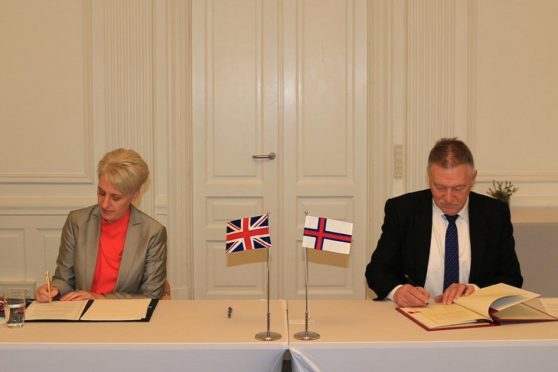Ministers have signed a second standalone fisheries deal, preparing Britain for life outside the common fisheries policy from January.
The agreement, signed with the Faroe Islands, will mean the UK will hold annual negotiations on the issues of access to waters and quotas.
The deal follows a similar agreement with Norway last month.
Fisheries Minister Victoria Prentis said: “This agreement will ensure that annual fisheries negotiations can take place this year to the benefit of our fishing industry.
“I would like to thank our Faroese counterparts for their constructive approach, and I look forward to building on the strong and historic links between our nations while taking further steps to responsibly manage our seas.”
Faroes Fisheries Minister Jacob Vestergaard added: “This is a historic day for the relations between the Faroes and the United Kingdom. The signing of the Fisheries Agreement is a landmark in our history and a stepping stone in our joint ambition to develop further the cooperation between our two nations.
“I am especially pleased with the sincere and constructive working relationship between Faroe and UK Ministers and officials in recent years.”
‘Another significant step’
Each year the UK fishing fleet catches around £2.34m worth of fish from Faroese waters.
Species including cod, haddock, and pollock are landed in ports such as Lerwick, Peterhead and Ullapool.
In previous years, bilateral negotiations with the Faroe Islands were led by the European Commission on behalf of the UK and other member states.
This autumn, for the first time in more than 40 years, the UK will be negotiating fishing opportunities for 2021 as an independent coastal state.
Scotland Office minister David Duguid said: “This is another significant step on our road to becoming an independent coastal state.
“Leaving the restrictions of the Common Fisheries Policy means we can decide who can access our waters
“We will shortly begin our annual negotiations with the EU on fishing opportunities for next year and continue to push for a sustainable and profitable future for Scotland’s vital fishing industry.”


